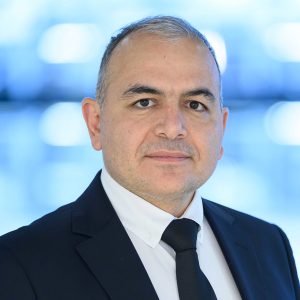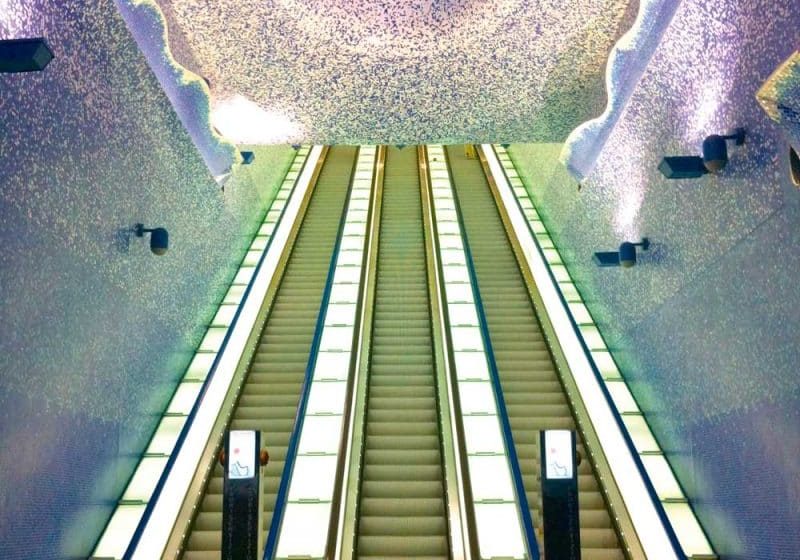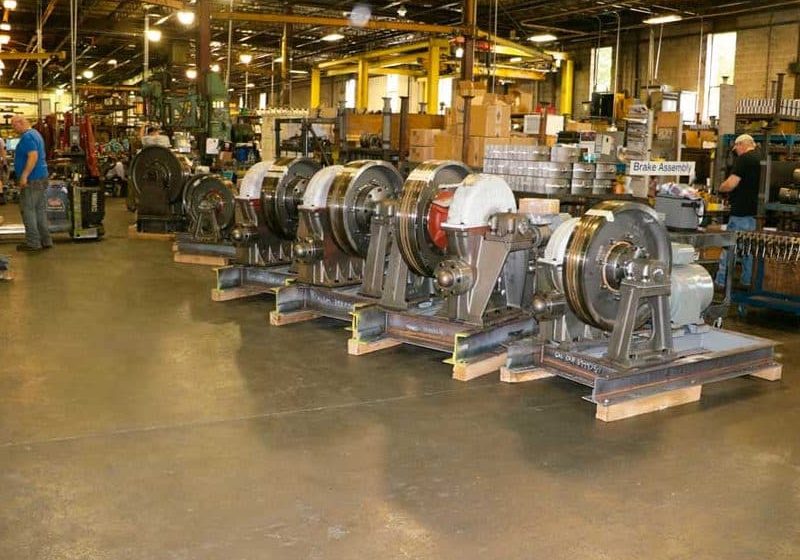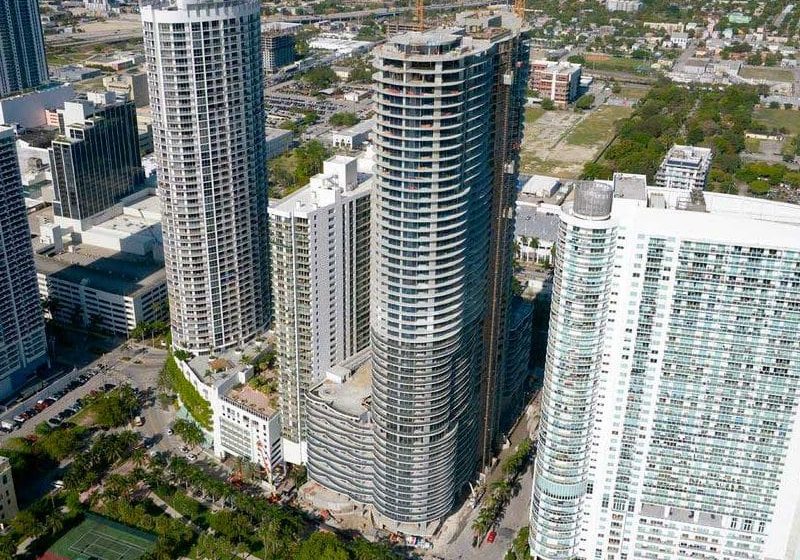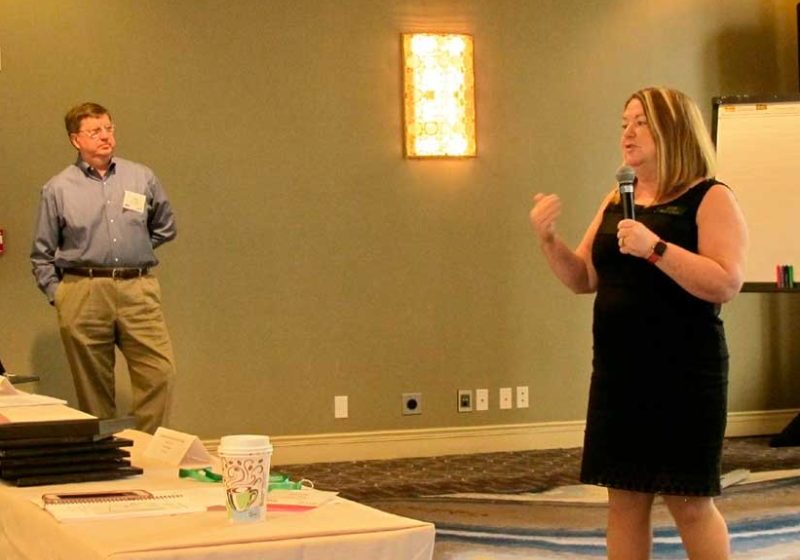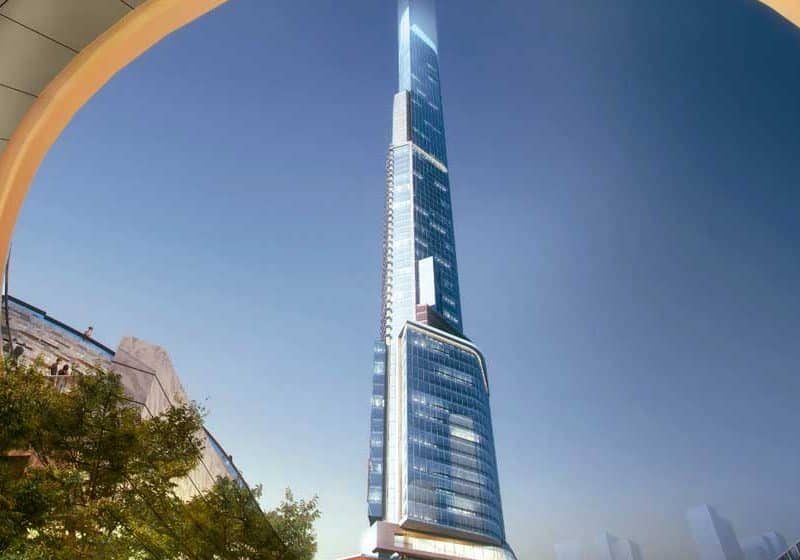Elevator innovation was a persistent theme in event’s 15th iteration.
Organized by İFO Fuarcılık with the support of AYSAD (Association of Elevator and Escalator Industrialists), this year for the 15th time, Asansör Istanbul was held at the Tüyap Fair Congress and Convention Center on March 23-26. The biannual event’s four-day exhibition attracted more than 300 companies from 22 different countries, including global leading brands of the sector with their technology. This year, 5,037 visitors from abroad and a total of 28,629 visitors from 76 different countries attended the exhibition.
Opened by Director General of Industrial Products Safety and Control of the Turkish Ministry of Science, Industry and Technology Uğur Büyükhatipoğlu; AYSAD President İzzet Güven; Chairman of the European Lift Association (ELA) Quality, Security, Environment and Education Committee Christophe Isaac Castiau; Chairman of Asansör Istanbul Fair Committee Sefa Targıt; Turkish Standards Institute General Secretary Mehmet Bozdemir; and General Manager of IFO Fuarcılık Zekeriya Aytemur, the exhibition brought together the world elevator industry in Istanbul.
Innovations in a wide range of categories were exhibited. These ranged from assembly and maintenance companies, to elevator manufacturers and suppliers, elevator contractors, certification bodies, contracting and consulting companies, construction and building sector representatives, project architects, and engineering companies. The technology exhibited related to Turkey’s 500,000, Europe’s 5.85 million and the 10 million elevators worldwide. A total of approximately TRY1 billion (US$272 million) worth of trading agreements was realized within the four days.
The agendas of the elevator industry, primarily safety, were discussed at the exhibition, which has been bringing together the global elevator and escalator sector since 1992. Additionally, Dr. Hasan Ali Çelik, deputy minister of Turkey’s Ministry of Science, Industry and Technology, visited the booths of the domestic manufacturers and spoke to them about their activities.
The program was participated in by international speakers and held with the support of AYSAD and ELA (see sidebar). The main agenda in the Elevator and Occupational Health & Safety Sessions organized by the ISGDER (Association of Occupational Safety Experts) was “safety and health of workers during installation, maintenance and service of elevators.” In addition, training for working at height on the platform installed in the exhibition area, as well as solution presentations from exhibitors, attracted many visitors.
Despite the decline in the number of visitors from Europe this year, the number of visitors from many different Middle Eastern countries was considered satisfactory. ELEVATOR WORLD was able to closely observe the number of visitors from the Middle East and North Africa with the EW Middle East magazine, which was distributed at our booth.
Another reason for visitors’ increased interest was the introduction of new products and designs from many companies. Arkel Elektrik Elektronik San.Tic. A.Ş introduced an innovative regenerative unit. This device, which is the same size as an average desktop computer, enables energy savings by sending energy back to the network, instead of destroying energy generated by the elevator.
Melih Küçükçalık, Arkel’s founding partner and general manager, who exhibited many new products, including the regenerative unit, informed about elevator control systems. Küçükçalık pointed out the regenerative unit’s advantages:
“While synchronous-type electric-motor-driven elevators are moving down with [a] heavy load or up with [a] light load, the engine begins to produce energy. This energy has to be damped. For this reason, the energy that is released in conventional-type systems is transmitted to the braking resistor and is converted into heat and then wasted. Thanks to the new technology [of] regenerative units, it is now possible to regain this energy and transfer it to the network. In this respect, elevators have [saved] about 35% [energy] compared to conventional systems. As Arkel, we are happy to bring this technology to our country, which we have developed with our 100% domestic R&D and capital. In the world, this technology is new and little known. The Arkel regenerative unit has already taken its place among the few competitors in the world.”
The company will increase its production capacity by moving to new production facilities in Sancaktepe that have 10,000 m2 of closed area later in the year.
Prolift Elevator, one of the most important automatic-door manufacturers in the elevator industry, had its automatic doors certified by Liftinstituut at Asansör İstanbul. They comply with EN 81-20 and -50 standards that will be mandatory as of September 1, 2017. Bahtiyar Karakoç, general manager of Prolift, noted this was a first in the sector and that those at the company are very pleased with the certification.
The GigaLift and Double Drive systems exhibited by Yeterlift at the exhibition drew great interest as an alternative solution for heavy loads. Industry members had recently seen and examined them closely, and here, they were introduced as new products.
The KLEEMANN Press Dinner, which is a classic at, especially, Interlift in Germany and Asansör Istanbul, brought together all members of the press, both from Turkey and abroad. At the dinner, which took place in a friendly environment, preparations and work on KLEEMANN’s factory investment in China were discussed.
The next iteration of the biannual event will take place in 2019.
AYSAD Congress 2017
International trends, audits among topics addressed during three-day segment.
By John Gale
Turkish elevator association AYSAD held its 2017 Congress, a three-day event that took place during and in conjunction with Asansör Istanbul 2017. AYSAD, working with the European Lift Association (ELA), presented the congress to help elevator professionals navigate the industry’s ever-expanding areas of regulation, technology and work practices.
On the first day of the congress, Elif Özlem Babaoğlu of the Turkey Department of Examination and Certification, Vocational Qualifications Authority discussed the “Obligation of Certification in the Lift Sector.” The second day was devoted to international topics. The third day covered lift topics and industry overviews in Turkey. The congress allows key industry people to share experiences with a wider audience, which is beneficial to those active in the industry at all levels. Simultaneous translations were available to accommodate the international audience.
The venue was one of the new conference rooms in the Tüyap complex. The congress has been crucial in providing an international platform and is an important source for information regarding global markets, safe working conditions, and new codes and standards. To that end, ELA offered two important presentations for the international session of the 2017 congress.
International Session (Day Two)
The second day’s session was chaired by Selcuk Dikmen, an experienced lift professional and consultant, who introduced the day’s two key discussion topics. The first, given by Ebru Gemici from ELA/VDMA (German Mechanical Engineering Industry Association), was entitled “European Statistics 2015” and focused on industry numbers for that year. In detailing the “basic and industrial” statistics, Gemici highlighted key 2015 industry figures for Europe: 154,300 people employed in the industry, 5.85 million existing lifts, 127,000 new lifts, 134,000 existing escalators, 4,700 new escalators and EUR7 billion (US$7.45 billion) in revenue.
Gemici then turned to industry accidents in Europe and Turkey in 2015. She related that across Europe, there were 164 worker-related accidents regarding the installation of lifts, and 681 accidents related to the service and maintenance of lifts. In Turkey, she said, there were eight fatal, 10 serious and 22 minor accidents in 2015. Gemici closed her presentation by saying that the 2016 figures would soon be completed.
The day’s second presentation was given by Chairman of the ELA Quality, Security, Environment and Education Committee Christophe Isaac Castiau, who looked at the global elevator industry in terms of megatrends, standards and directives, as well as some of the key projects being built around the world.
When considering the 2015 global market for new lifts and escalators, Castiau noted that China/Asia continued to be the main driver; indeed, 63% of the world’s new units that year were installed in this region. He then pointed to megatrends affecting the industry and told the gathering it is important to remember the four key elements impacting these megatrends: urbanization, demographics, rising consumer spending and the Internet of Things.
Key in many ways for the future, he said, was the development of global codes and the move toward full harmonization under International Organization for Standardization (ISO). Indeed, ISO/TC 178/WG4/TFC is preparing this single global standard, phase one of which should be made available by the end of the year. This will complete the first of three phases that will, by the end of 2026, result in a fully harmonized global lift standard.
Turkish Session (Day Three)
AYSAD President Izzet Guven served as chairman for the third day of the congress, and he introduced a panel of industry experts who presented topics for discussion and debate. The panel included Ilyas Menderes Büyüklü from the Turkish Ministry of Science and Industry, Aziz Bilge and Oğuzhan Bulgurluoğlu from AYSAD, elevator consultant Serdar Tavaslıoğlu, Oğuz Yanık from EAYSAD and Battal Öztürk from EAYSAD. They held the floor at the special session “Elevator Periodic Control Panel” moderated by AYSAD President İzzet Güven. About 120 people filled the room for the session.
The liveliest debate came during the “Discussion Session on Lift Periodical Controls” session. Gathered for this was a large cross-section of the Turkish lift community, including members of AYSAD and senior lift consultants. Many complained about the proficiency and knowledge of auditors, homogeneity of the audits in different cities, delays of reports, differing comments from auditors examining the same case and even poor handwriting on stickers placed by auditors.
Büyüklü, lift branch manager of the Ministry of Science, Industry and Technology, discussed some of the terminology used in the Turkish lift industry and shared with the audience some data regarding audits:
- Number of municipalities where audits are mandatory and there is at least one contracted Auditing Body: 1,421 (out of 1,445, for 98.3%)
- Number of Accredited Auditing Bodies: 30
- Number of audits in 2016: 301,533
- Red (not safe to use) stickers given: 189,539 (62.85%)
- Green (safe to use) stickers given: 66,723 (22.1%)
- Approximately 15% had various minor defects.
- Büyüklü said there are a little more than 500,000 units running in Turkey.
John Gale: is a third-generation veteran of the lift industry. He has worked as a photographer and contributor for ELEVATOR WORLD since 1986, primarily covering meetings, congresses and trade shows. In 1999, he co-designed Moving People from Street to Platform, a book on the vertical-transportation equipment in the London Underground.
Get more of Elevator World. Sign up for our free e-newsletter.

